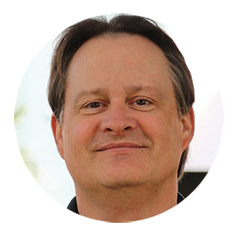Program Details
Course Description
Join us for a dive into the rich history of our founding, the fascinating research taking place today and our investment in the next 50 years. Presented by Jim Sullivan, Ph.D., executive director of FAU Harbor Branch Oceanographic Institute.This program will highlight the innovative ocean research and its top-tier educational programs that will lead us to solve the most pressing issues facing our oceans. Founded in the spirit of ocean exploration to unveil the mysteries of the deep, FAU Harbor Branch prioritizes solution-oriented research that addresses some of the challenges affecting coastal and ocean zones both locally and internationally.
Since its inception, the institute has been instrumental in affecting change in these areas through a deep understanding of key species, fragile habitats and ecosystem dynamics.
Using visuals and anecdotes from the past, you will learn about the visionary Edwin A. Link and his passion for ocean engineering and exploration which led to the establishment of Harbor Branch in 1971. Learn about FAU Harbor Branch Oceanographic Institute’s principal areas of research:
- marine ecosystem conservation
- aquaculture innovation and food security
- ocean health
- human health and technological innovation, and
- national defense.
Course Info
- Time: 3:00 PM - 4:30 PM
- Date: Tuesday, March 8
- Location: Lifelong Learning classrooms, Continuing Education Building
-
Fees:
Member - $30
$75 for any combination of three events, members only
Non-member - $35
One-time guest pass, Member or Non-member at the door - $35.
About the Instructor
-
Jim Sullivan, Ph.D., executive director of FAU Harbor Branch Oceanographic Institute, earned his master’s and doctoral degrees in biological oceanography with specializations in phytoplankton physiology and ecology, as well as bio-optics and biophysics from the University of Rhode Island, Graduate School of Oceanography. He has spent most of his career studying phytoplankton (algae) and developing new optical instrumentation and techniques to better understand their physiology and ecology in the ocean. He is particularly interested in improving our scientific understanding of Harmful Algal Blooms (HABs) and how to better inform the public, water management agencies and, policymakers of critical HAB science.

